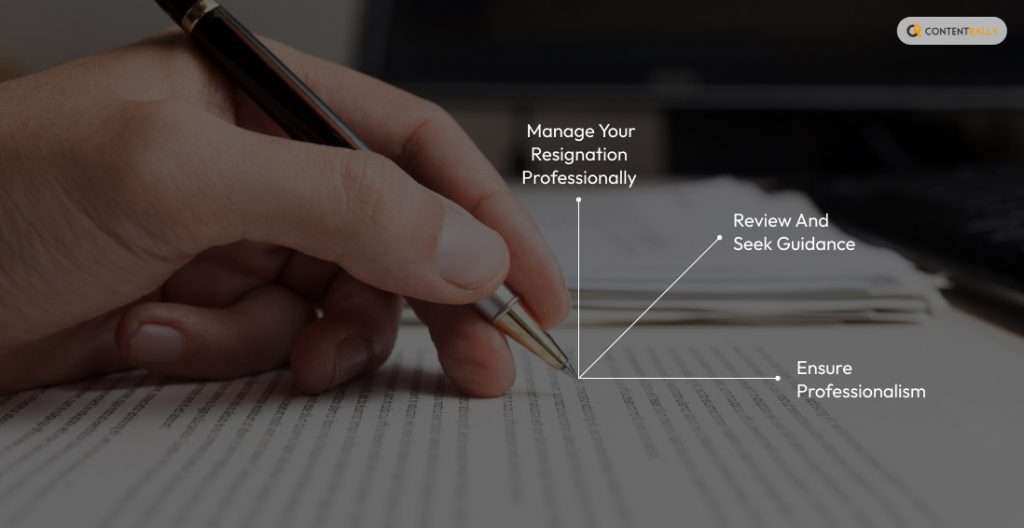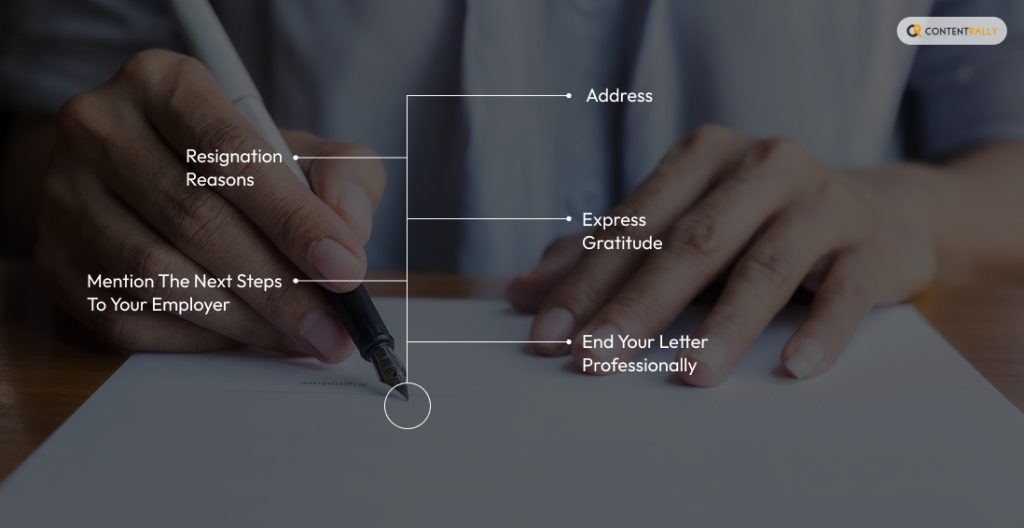A 2 week notice letter is a resignation notice that you offer your employer to leave your job professionally.
Basically, most companies allow their employees to serve a two-week notice period before they leave their jobs. In some cases, it might extend to four weeks. Within this time, you offer your employer to find a suitable replacement.
In this article, you will learn about the importance of a 2 week notice letter. Apart from that, you will also learn how to write and submit this letter to your employer.
Moreover, this article will guide you on what to include in that letter. Hence, to learn more, read on to the end of the article.
What Is A 2 Week Notice Letter?

Before you leave your job, you must offer your employer advance notice that you are about to leave. Generally, this notice can be issued for either two weeks or a month. You can also ask for future references once you maintain professionalism and serve the notice period.
If you leave your job, you must understand the necessity of offering a resignation letter to your employer. Hence, you must write a courteous and professional letter that leaves a good impression about you.
Moreover, once you offer your 2 week notice letter to your employer, you are giving time to your employer to find a suitable replacement. Meanwhile, your employer can also consider training another staff member who will take up your responsibilities.
In most cases, this process is a professional courtesy. However, in other cases, you must offer the 2 week notice letter if you want to resign from the position formally. For instance, serving a two-week notice period in many employment terms is a compulsion. This ensures that the resignation process is formal.
On the other hand, some employers might allow you to use your vacation days as your notice period. Then, you can leave immediately.
Apart from that, if you serve your two-week notice, you get the time to complete your work obligations. This way, you also offer your employer the chance to hire a replacement for your position.
Factors To Consider Before You Write A 2 Week Notice Letter

The following are the major factors you must consider before you write a 2 week notice letter to your employer:
1. Manage Your Resignation Professionally
If you offer immediate resignation, you must include valid reasons like health problems, relocation, etc. In this case, make sure to manage this resignation professionally.
This will help you preserve future relations and get job references. Hence, you must understand how to quit a job professionally and gracefully.
2. Review And Seek Guidance
Sometimes, you might not have the time to serve your notice period. Hence, in such cases, before you submit your resignation notice, consult with your HR, review your contract, seek guidance, or inform your employer directly. This will help you better understand what you need to do in the given situation.
3. Ensure Professionalism
As you type a resignation letter, use professionalism in your language. Also, if you are offering a resignation in person, state your reasons respectfully. Moreover, you must also take steps to address your concerns, express gratitude, and ensure accuracy.
Write A 2 Week Notice Letter: Step-by-Step Method

The following are the steps you must follow if you want to write a good 2 week notice letter to your employer:
📜Address
Ensure the letter contains the date, company name, and your manager’s name. Here, the person you are addressing can change. Generally, in most cases, this will be your supervisor.
📜 Resignation Reasons
Try to make your resignation short and compact. However, make sure to mention valid reasons as well. For instance, in the opening lines of your letter, state you are informing your employer that you will resign in two weeks. Moreover, make sure to include and specifically mention when you will work your last with the current organization.
📜 Express Gratitude
In the middle portions of your letter, thank your employer for the opportunities. Also, offer a thanks for all the experiences. Here, you also need to add the reason for your departure. Here, consider explaining those reasons in brief.
📜 Mention the Next Steps to Your Employer
When you close your letter, inform your employer that you are willing to perform the necessary duties and comply with the organization’s conventions. Also, offer help to assist in the transition process.
📜 End Your Letter Professionally
You must conclude your 2 weeks notice letter formally. For instance, you can use words like “Sincerely,” and sign your name accordingly. Apart from that, do not forget to mention your current position and your employee number.
What to Do When You Cannot Submit a 2 Week Notice Letter?

You might face a situation where you must resign immediately without serving your notice period. Hence, in such situations, you must consider following the process so that it does not cause a lot of inconvenience or conflict.
This is because maintaining cordial relationships with your employer is important. This will help you get better references in the future. For example, you might need a reference letter from your employer to rejoin the company.
The following are the factors you must consider if you want to leave without submitting a 2 week notice letter:
1. Read Your Work Terms/Contract
According to Indeed.com,
Many employers include the statutory minimum notice period they expect from resigning employees in their work contracts. In normal circumstances, it is a professional courtesy to inform the employer of your intention to leave one to three months in advance and give them the notice in writing.
Hence, you must read your work contract properly. This way, you can find essential information about your notice period. Also, you can find out whether there are some clauses to leave immediately or not. Moreover, read the clauses that talk about working with industry competitors.
Furthermore, in some cases, certain employers will require you to wait for some time before you start working with a competitor. Hence, you must know about these in detail.
2. Talk to Your HR Manager
Your HR manager knows a lot about the work policies and terms. Hence, the best option is to ask them what you can do if you cannot serve the notice period for your employer. This way, the HR manager will guide you and offer you a way out.
Also, clarify to your HR manager that the matter is confidential and that you want to inform your employer yourself. Hence, HR will guide you in such situations with the best options if you want to leave immediately.
Related: Utah PEO: Your Partner In HR Excellence
3. Talk To Your Employer
One of the ways to approach your employer is to talk directly. Just go to them by requesting a meeting and inform them of your situation. Here, explain your reasons in detail and offer reasons why you need to leave this job immediately. In this case, keep an honest and professional approach.
Basically, you must make them understand that your only option is to resign from the job immediately in this circumstance. Also, be willing to complete your pending tasks before you leave.
4. Get Advice from Your New Employer
You must also discuss the situation with your new employer by telling them the repercussions of not serving the notice period. For instance, if they want you to join their organization immediately, ask them to write you a letter stating this. Then, you can forward this letter to your current employer.
As a result, this will act as a better situation where you can resign from your job without a big issue.
Create Your 2 Week Notice Letter Now
If you want to create a 2 week notice letter, follow the instructions in the above section. However, if you cannot serve the notice period, make sure to talk to your employer and HR in person. This way, you can resolve the situation faster.
Do you have more suggestions about how to write a 2 week notice letter? Please share your ideas and opinions in the comments section below.
Read Also:























